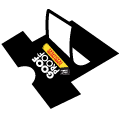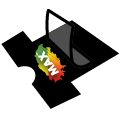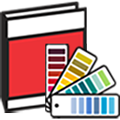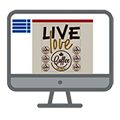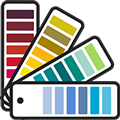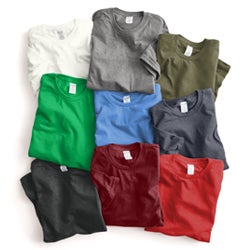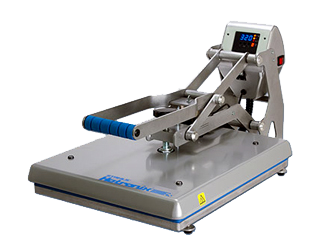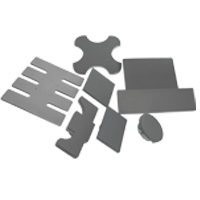How Long Does it Take To Pay Off A Heat Press? Smart Investments for Apparel Decorators
Browse Video Categories
Transfer Application | Artwork & Apparel | Easy View Tutorials | Webinars | Ordering Tips | Business | Heat Presses
Hey Fam, Vince here from Transfer Express, today we’re talking about making smart investments for your t-shirt business.
Now, whether you’re a custom wholesale decorator or running your own t-shirt brand, you’re going to need a way to print t-shirts, and that brings us to a heat press.
We’ve seen so many small businesses start with success in their bedrooms, basements or garages with just a heat press. With a low learning curve and quality results all with a fairly low startup budget, it’s a pretty solid recipe for success. So, let’s dive in and talk about how long it takes to pay off your investment into a quality heat press.
Before we jump into some cost and pricing scenarios, I do want to cover a few things first. With screen printed and digital transfers, like we have here at Transfer Express, you have the ability to order your prints on demand, or when you need them, reducing financial risk and cost. The same goes for apparel, buy the blanks when you need them- reducing space needed for storage and again, the upfront costs of having a fully stocked apparel warehouse.
If you require a down payment from your customer or even the order to be paid in full before you start printing, those blanks and transfers are purchased with the customer’s money so no cash out of your pocket.
Which means: a heat press is the only piece of equipment you need. No printing presses, dryers, screens, inks, squeegees and emulsions if you’re thinking about the screen printing route, and no expensive printers that eat ink and require cleaning if you’re planning to print transfers at home. None of that, just one single heat press, like the one right here behind me.
Investing in a quality heat press means you’ll have reliability not only in consistent applications, but longevity. A press that will meet your needs as a startup and grow with you for many years to come. There’s no regular maintenance required, plug it in, turn it on and it’s always ready to go when you are.
Take this Stahls’ Hotronix Auto Clam. It’s fully featured with a dual stage timer, easy pressure readouts and spot on temperatures, all thanks to the patented heating coil that’s cast in the upper platen. It also has the ability to quickly change out the platens and has some awesome accessories that you can pickup for it too: like this Caddie Stand we have ours on that allows for easy t-shirt loading on and off the press and makes it easy to move around the shop.
Now, this Auto Clam is available in 3 sizes, 11x15, 16x16 and a full size 16x20, which is what this one is. Retailing for $1,875, it’s definitely a commercial-quality machine, but, even for small businesses, an investment like this isn’t going to take years to pay itself off.
So, let’s jump into a couple scenarios, one for custom wholesale decorators, and one for those online t-shirt shops and see how many shirts it’s going to take.
For our example, we’re just going to be using two variations of t-shirts, a budget-based Gildan 5000 and a little more premium Next Level 3600.
Of course you can print so much more than just shirts with your heat press - there’s tote bags, hoodies, sweatshirts, polos and the list goes on for more profit potential, but that can be a different video. We’ll just be covering some standard t-shirts today.
Our first scenario is for a wholesale decorator with an average quantity right around 50 shirts, which, according to our data and a few customer surveys, is a pretty standard average.
We’ll also factor in a single-color, 11" x 7” print in the standard front location- the vast majority of t-shirts.
With our Goof Proof screen printed transfers on a standard size 11.25 x 14” sheet, we can fit two of these prints per sheet, so we only have to order 25 sheets for 50 total prints. Bringing our print cost to just $3.27 per sheet, or $1.63 per image. We’ll use this calculated print cost across all of our scenarios.
So, for our first scenario you can find a Gildan 5000 blank for around $2.60. Combined with the $1.63 print cost, your total cost of the printed shirt is only $4.23. At 50 quantity, you can price these around $9.50 each to your wholesale customer, which is competitive to online quotes we got from print shops on the internet. That’s more than double the cost in profit, for $5.27 in profit per shirt! With 355 total shirts, your heat press is completely paid off. That’s just 7 orders of 50 shirts.
With Goof Proof screen printed transfers applying in just 4 seconds, you can easily print 100 shirts an hour including time for loading the press and aligning the transfer, so, calculated to one and a half (1.6) shirts per minute. For just over 3 and a half hours of actual press time!
Let’s use this same scenario and apply it to retail pricing- say if you’re a brand selling shirts on Etsy or other online marketplaces.
Our cost on the Gildan 5000 stays the same - the blank for $2.60, screen printed transfer for $1.63, for a total cost of $4.23. But, before we talk profit, let’s factor in some operating costs- an ecommerce website or fees on an Etsy shop is going to be an added expense, so let’s average this out to add $1.75 per shirt (more than enough to cover those pesky 6.5% transaction fees on Etsy). So our new cost is now $5.98 per shirt. This type of t-shirt retailing for say $20 on Etsy, brings in a whopping $14.02 in profit per shirt. This means in just 134 shirts sold, or about 1.4 hours total at the heat press, your press is completely paid off. Now, we didn’t cover shipping fees, as they’re variable and in most cases are passed on to the customer.
That already sounds pretty good, so let’s swap these garments over to the Next Level 3600 and see how it shakes out.
Next Level blanks are a little more pricey at $4.40 or so. Combined with the $1.63 print cost we calculated earlier, your total cost of the printed shirt is only $6.03. At 50 quantity, compared to industry average, you can charge around $13.50 each to your wholesale customer. That’s again, more than double the cost in profit, for $7.47 in profit per shirt. With just 251 total shirts or 5 orders of 50 shirts, your heat press is paid off. With the quick application of Goof Proof transfers, you’re just over 2 and a half hours of total time at the heat press.
Let’s run this one through the ecommerce / retail scenario, too!
The blank for $4.40 and the transfer for $1.63, for a total cost of $6.03. Add in the $1.75 per shirt operating costs, brings us to $7.78 per shirt. This premium t-shirt retails a little higher for say $26 each, giving us $18.20 in profit per shirt. This means in just 103 shirts sold or just over an hour total at the heat press, your press is completely paid off.
So you can see, when people say they use their heat press to print money, they’re right. Sure, looking at the cost upfront might seem expensive, but when you look at the profit potential, and just a few hours of operation, you’ve got a serious money maker.
Thanks for watching! Be sure to subscribe to our YouTube channel to stay up to date on all of the helpful educational and inspirational videos we’re posting every week.
Until next time, I'm Vince, happy pressing!

